Why DHA Is Essential for Dog's Joint Pain Relief
Support Your Dog's Joints With Omega-3

Support Your Dog's Joints With Omega-3
Ensuring our dogs live healthy, active lives is a top priority for pet owners. One crucial component in supporting canine joint health is Docosahexaenoic Acid (DHA), an omega-3 fatty acid known for its anti-inflammatory properties. Understanding how it benefits dogs, especially in alleviating joint pain, can help pet owners make informed decisions about their pets' diets and supplements.
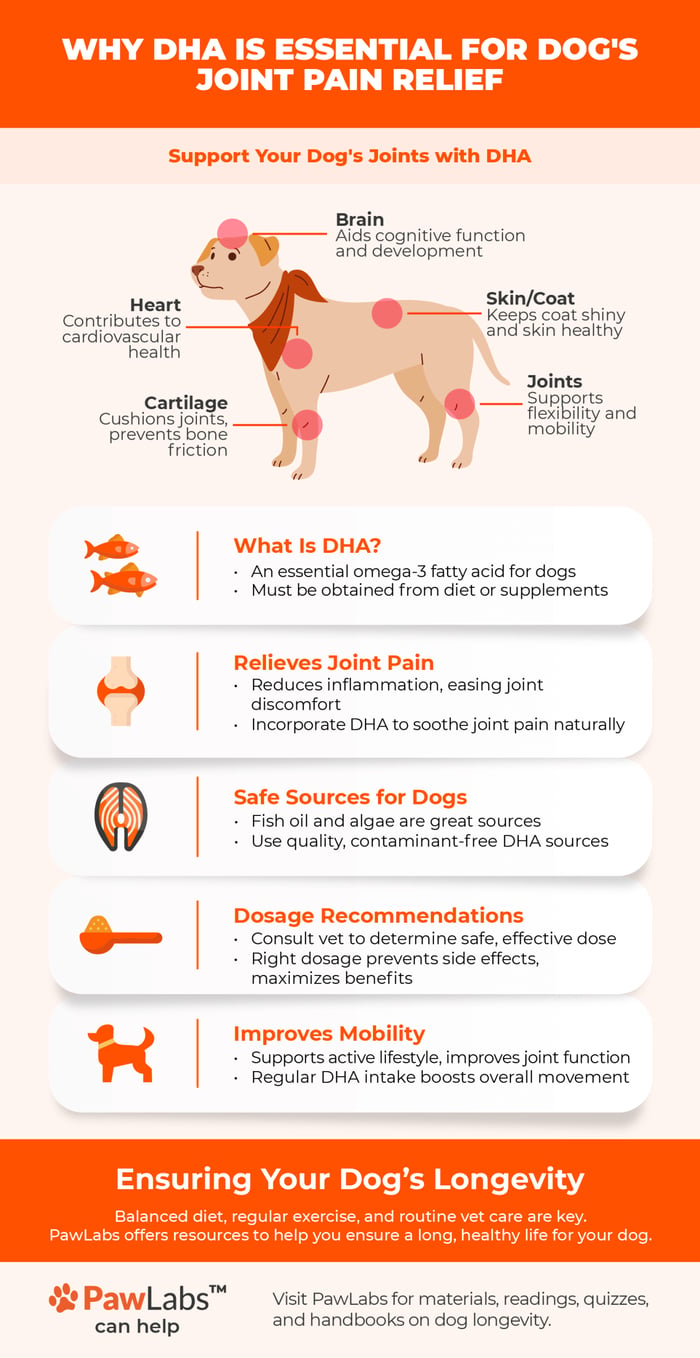
What Is DHA, And Why Is It Beneficial For Dogs?
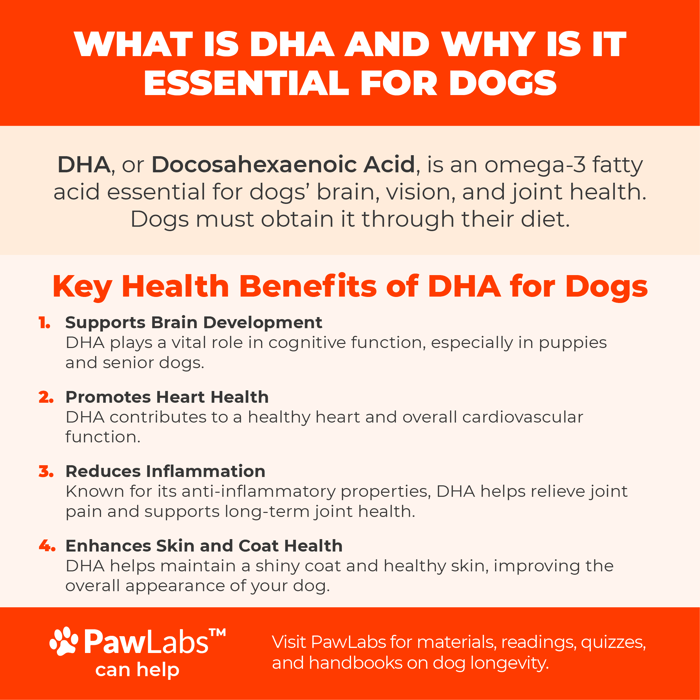
DHA, or Docosahexaenoic Acid, is a type of omega-3 fatty acid essential for various bodily functions. In dogs, it plays a significant role in brain development, vision, and reducing inflammation. Unlike some nutrients, dogs cannot produce it on their own and must obtain it through their diet.
Incorporating it into a dog's diet can lead to numerous health benefits. For example, it supports cognitive function, making it particularly important for puppies and senior dogs. Additionally, it contributes to cardiovascular health and can help maintain a healthy coat and skin.
How Does It Work To Relieve Joint Pain In Dogs?
DHA's anti-inflammatory properties are key to its effectiveness in relieving joint pain. By reducing inflammation, it helps alleviate discomfort associated with conditions like arthritis, as noted by Dr. Jennifer Adolphe, a veterinary nutritionist: “Omega-3 fatty acids have been shown to reduce inflammation in dogs with osteoarthritis, improving comfort and mobility.” (PetMD).
Moreover, it supports the maintenance of healthy cartilage, the tissue that cushions joints. Preserving cartilage integrity helps to prevent further joint degradation, which is crucial for dogs with chronic joint conditions.
What Are The Main Sources Of DHA For Dogs?
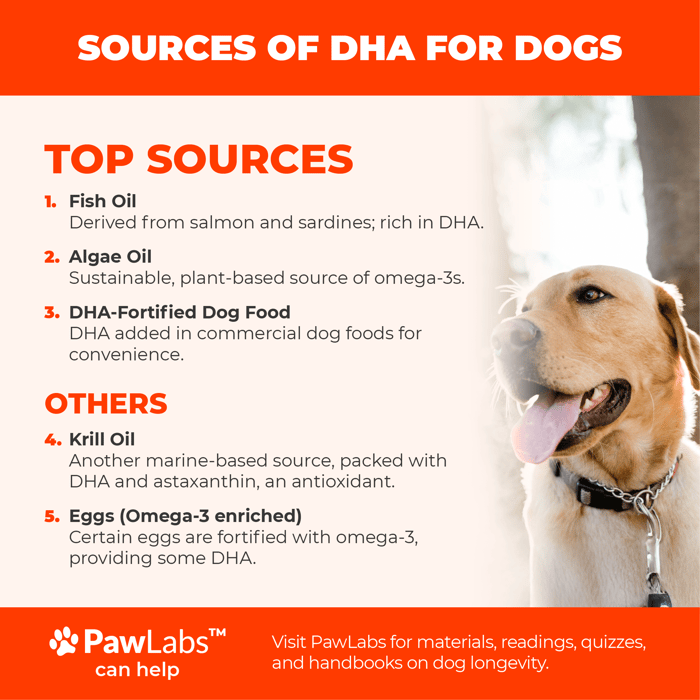
The primary sources for dogs are marine-based, including fish oils derived from salmon, mackerel, and sardines. These oils can be added to a dog's diet through supplements or by incorporating fish into their meals. It's important to choose high-quality, purified fish oils to avoid contaminants (AKC.org).
For dogs with fish allergies or for owners seeking plant-based options, algae oil serves as an excellent alternative. Algae oil is rich in Docosahexaenoic Acid and is considered a sustainable source. Additionally, some dog foods are fortified with it, providing a convenient way to ensure adequate intake.
How Does It Compare To Other Joint Pain Treatments?
Traditional joint pain treatments for dogs often include nonsteroidal anti-inflammatory drugs (NSAIDs) and supplements like glucosamine and chondroitin. While these can be effective, they may come with side effects such as gastrointestinal upset. In contrast, it offers a natural alternative to help reduce inflammation with a lower risk of adverse effects (Vetinfo).
Combining DHA with glucosamine may provide synergistic benefits, addressing both inflammation and cartilage repair. However, it's essential to consult with a veterinarian before starting any new supplement regimen.
Can It Prevent Joint Issues As Well As Relieve Pain?
In addition to alleviating existing joint pain, DHA may play a role in preventing the onset of joint issues. By maintaining healthy cartilage and reducing inflammation, it helps protect joints from wear and tear. This is particularly beneficial for breeds predisposed to joint problems.
Early incorporation into a dog's diet can serve as a proactive measure against joint degeneration. Puppies and young dogs can benefit from its support in developing strong joints, potentially reducing the risk of arthritis in later years.
What Dosage Is Safe And Effective For Dogs?
The ideal dosage of DHA for dogs depends on factors such as size, age, and health status. A general guideline suggests a daily dose of 75-100 mg per kilogram of body weight. For example, a 50-pound dog would require approximately 1,700 to 2,200 mg daily (Canine Arthritis Management).
It's crucial to consult with a veterinarian to establish the correct dosage for your dog. Over-supplementation can lead to side effects, so professional guidance ensures both safety and effectiveness.
Are There Any Side Effects Or Risks With This Supplement?
While DHA is generally safe for dogs, excessive intake can lead to potential side effects. These may include gastrointestinal disturbances such as diarrhea or vomiting. Additionally, high doses can have a blood-thinning effect, which may be problematic for dogs with clotting disorders (VCA Hospitals).
To reduce risks, it's essential to follow recommended dosages and watch your dog for any adverse reactions. Regular veterinary check-ups can help ensure that supplementation benefits your dog's health without causing harm.
How Can This Supplement Improve Your Dog's Overall Mobility?
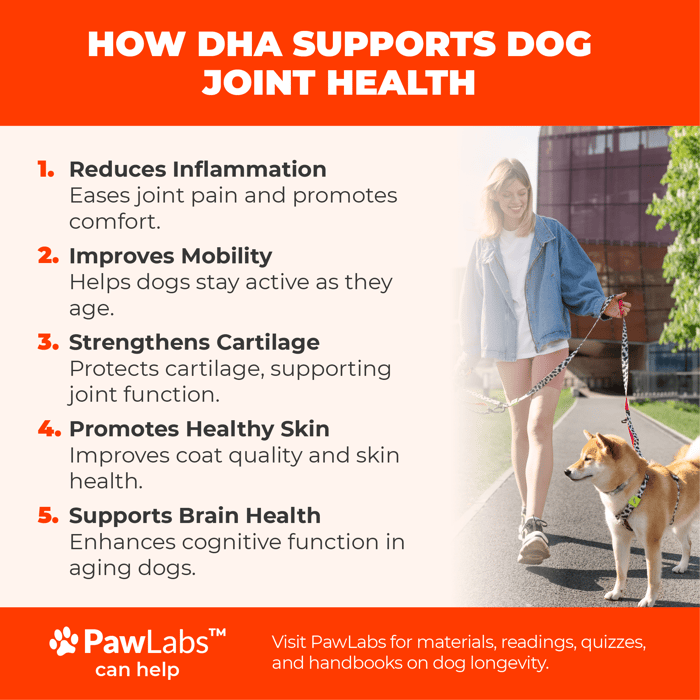
By reducing inflammation and supporting joint health, Docosahexaenoic Acid supplements can significantly enhance a dog's mobility. Dogs suffering from arthritis or other joint conditions may experience increased comfort and a greater willingness to engage in physical activities.
Improved mobility not only enhances a dog's quality of life but also contributes to overall health. Regular exercise is vital for maintaining a healthy weight, cardiovascular fitness, and mental well-being.
The Importance of Dog Longevity
Ensuring our dogs live long, healthy lives is a goal shared by all pet owners. Longevity is influenced by various factors, including genetics, diet, exercise, and preventive healthcare. By focusing on these areas, we can enhance our dogs' quality of life and extend the time we share with them.
Wild Alaskan Salmon Oil
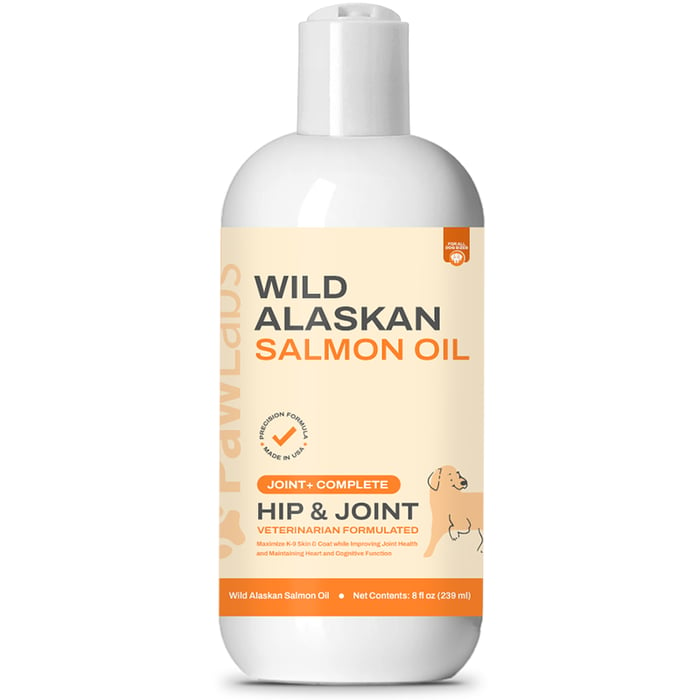
Wild Alaskan Salmon Oil stands out for its purity, high omega-3 and omega-6 content, and sustainable sourcing. Unlike farmed salmon, wild Alaskan salmon offer higher nutritional value and are free from contaminants and artificial additives. This ensures superior quality and health benefits for your dog.
Wild Alaskan Salmon Oil
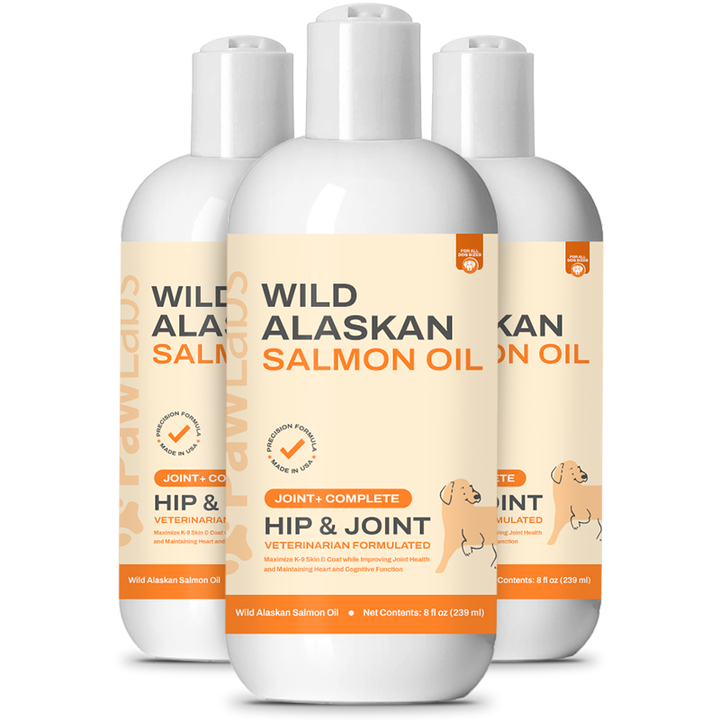
$24.95
$34.95
8 ESSENTIAL KEY NUTRIENTS: Omega-3 (EPA and DHA) Omega-6 Natural Vitamin D3 Essential B Vitamins Astaxanthin Biotin Selenium Iodine … read more
 SUCCESS!
SUCCESS!






